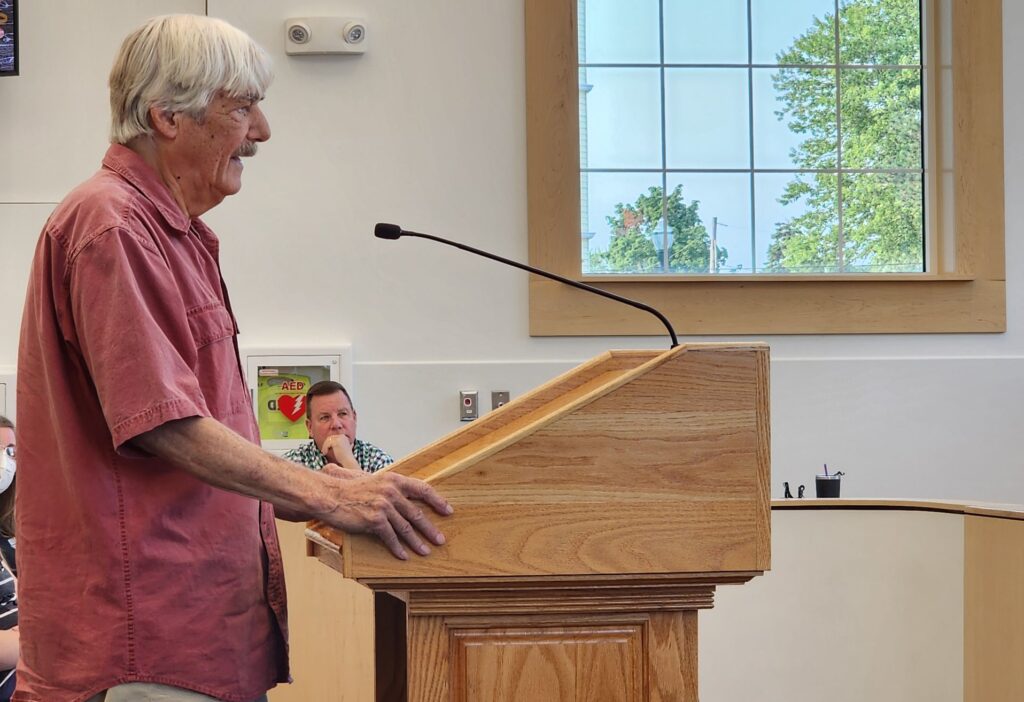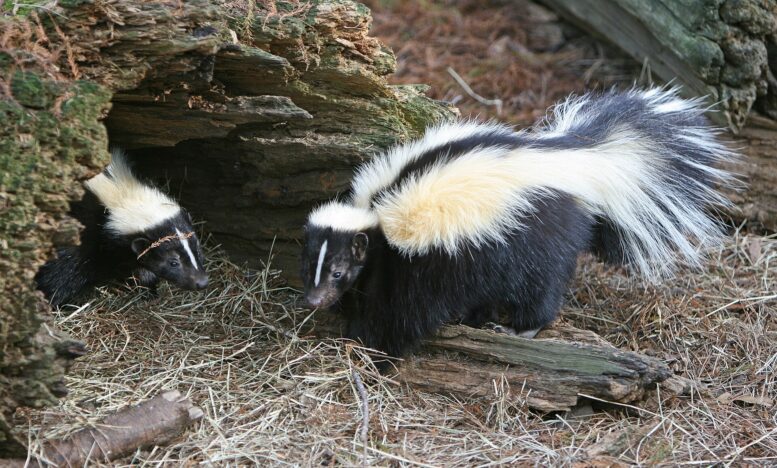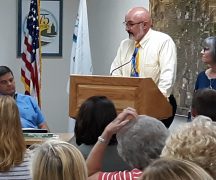By JAN McLAUGHLIN
BG Independent News
The lack of an animal control officer in Bowling Green really stinks – literally – in some neighborhoods populated by skunks.
A couple residents of the Village subdivision came to City Council Monday evening to share their dismay over wild critters in their neighborhood. Alex DiPuccio and Nancy Eidson asked that the city reconsider the decision to no longer employ an animal control officer.
When the last animal control officer, Tom Sieving, retired in 2019 city officials decided to not fill the position. https://bgindependentmedia.org/bg-animal-control-officer-retiring-from-catching-snakes-gators-and-skunks/
“We have nobody to call to remove them,” DiPuccio told council members. “It’s a big problem.”
That’s led residents to pay contractors to capture troublesome wildlife.
After seeing skunks near his home, DiPuccio hired someone to place live traps in his yard. Over a series of days, the traps captured four skunks and one opossum – and cost DiPuccio a total of $325.
Eidson told council that in the past when a cat and a raccoon – both with rabies – were found in her neighborhood, the animal control officer responded and took them away.

DiPuccio warned that the wild animals could also pose problems bringing ticks into their neighborhood that has many families with small children.
Mayor Mike Aspacher explained that when Sieving retired, the city assessed the animal control officer position. It was determined that much of the position’s focus had been dealing with domestic animals – dogs and cats.
The city found that many of those services were actually handled by other agencies. The Wood County Dog Warden is responsible for loose or dangerous dogs, and the Wood County Humane Society accepted cats captured in the city, Aspacher said.
City officials decided that continuing to employ an animal control officer would be a redundancy of services provided by others, the mayor said.
Aspacher pointed out that the city’s website includes extensive information on how to deal with wildlife in residential areas, and the effects of humans feeding wild animals. The website also includes a list of licensed commercial wild animal contractors.
The city has heard many concerns by residents about wildlife in their neighborhoods – especially about deer eating landscaping and wild turkeys being aggressive toward people.
In response to those concerns, BG City Council passed an ordinance in June covering the feeding of wildlife in the city. The language of the ordinance was eased after many residents expressed displeasure at restricting the feeding of wildlife.
After public input, the final version included provisions such as:
- Residents will be prohibited from feeding deer and turkeys on their properties, since those animals are the ones causing problems. Feeding of other wild animals will not be affected including squirrels, chipmunks, groundhogs, raccoons, skunks, opossums, muskrats, foxes and coyotes.
- The feeding prohibitions will not cover loose pets, such as cats and dogs.
- The ordinance affects only those people who “intentionally” feed deer and turkeys. If those animals eat from bird feeders intended for songbirds, there is no violation.
- People who have plants in their gardens or landscaping that deer or turkeys eat, the residents are not in violation of the ordinance.
“Managing wildlife in our neighborhoods is really complicated,” Aspacher said.
The mayor addressed the costs to the city if the animal control officer position were to be reinstated. The city would have to pay for the officer’s training, equipment and vehicle.
However, Aspacher said if City Council discusses this option during its upcoming strategic planning process and decides the city should pursue the position, the city administration will come up with a proposal.





